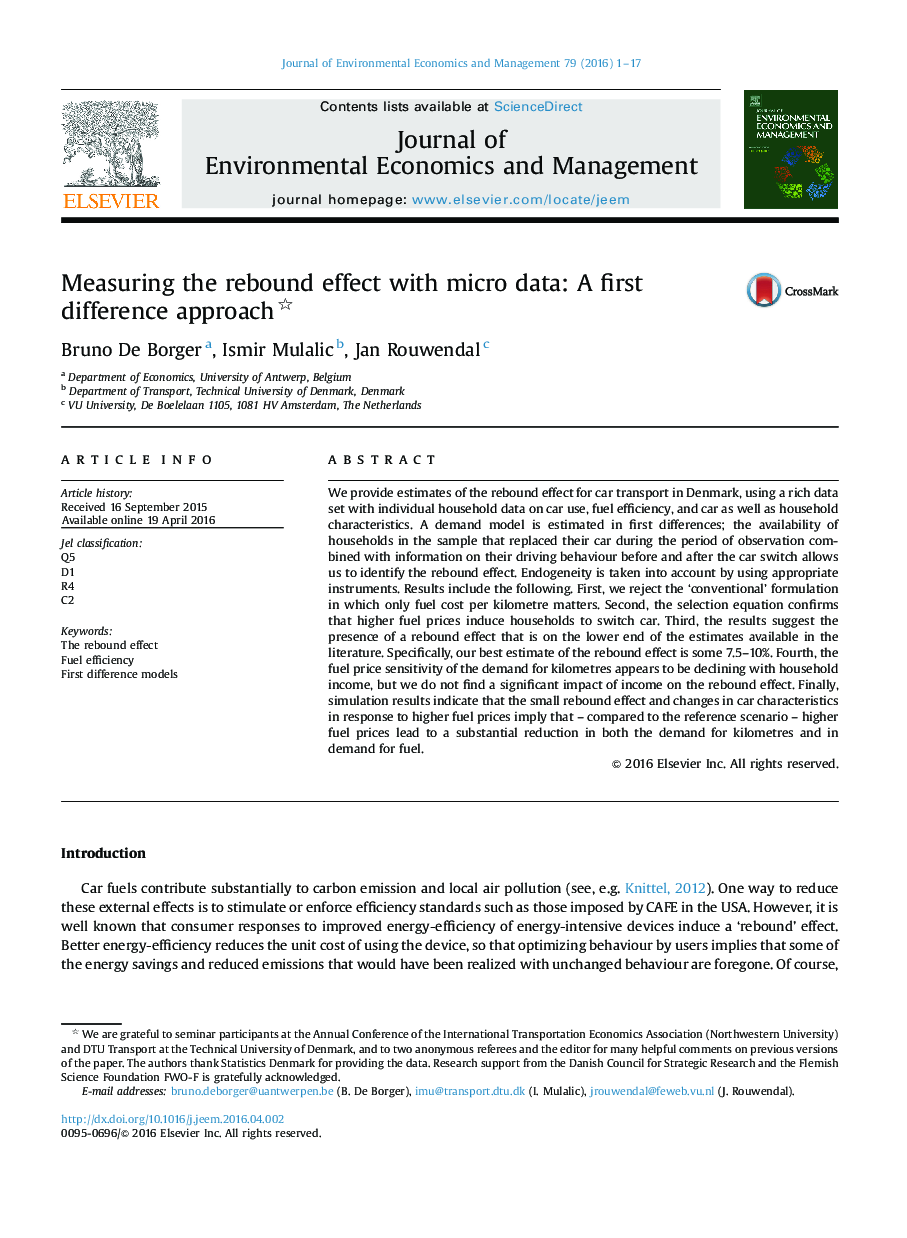| کد مقاله | کد نشریه | سال انتشار | مقاله انگلیسی | نسخه تمام متن |
|---|---|---|---|---|
| 959130 | 1478867 | 2016 | 17 صفحه PDF | دانلود رایگان |
• We measure the rebound effect on first differences, studying households replacing their car.
• We use instrumental variables to address endogeneity issues.
• We find different impacts of changes in fuel prices and fuel efficiency.
• We find a rebound effect of 7.5‐10%.
• We don’t find a significant impact of income on the rebound effect.
We provide estimates of the rebound effect for car transport in Denmark, using a rich data set with individual household data on car use, fuel efficiency, and car as well as household characteristics. A demand model is estimated in first differences; the availability of households in the sample that replaced their car during the period of observation combined with information on their driving behaviour before and after the car switch allows us to identify the rebound effect. Endogeneity is taken into account by using appropriate instruments. Results include the following. First, we reject the ‘conventional’ formulation in which only fuel cost per kilometre matters. Second, the selection equation confirms that higher fuel prices induce households to switch car. Third, the results suggest the presence of a rebound effect that is on the lower end of the estimates available in the literature. Specifically, our best estimate of the rebound effect is some 7.5–10%. Fourth, the fuel price sensitivity of the demand for kilometres appears to be declining with household income, but we do not find a significant impact of income on the rebound effect. Finally, simulation results indicate that the small rebound effect and changes in car characteristics in response to higher fuel prices imply that – compared to the reference scenario – higher fuel prices lead to a substantial reduction in both the demand for kilometres and in demand for fuel.
Journal: Journal of Environmental Economics and Management - Volume 79, September 2016, Pages 1–17
